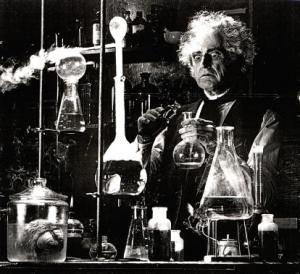I recently made a post about the poor public relations science has with the public. Since then I have been thinking about how we can remedy this shortcoming of science. Too no avail. Then, yesterday, a friend of mine made a Facebook post that caught my attention. It read, “The thing about smart people is that they seem like crazy people to dumb people.” Now, I don’t necessarily like labels, but like Forrest Gump said, “Stupid is as stupid does.”
a Facebook post that caught my attention. It read, “The thing about smart people is that they seem like crazy people to dumb people.” Now, I don’t necessarily like labels, but like Forrest Gump said, “Stupid is as stupid does.”
The more I think about it, though, the more I am beginning to realize, that many Americans are probably not dumb, they’re just lazy. Not necessarily physically lazy, but mentally lazy. They don’t want to think deeply. Hell, most of them don’t want to think at all.
Part of the problem is that we are not raising our children to think critically. We no longer have a need of knowledge for knowledge sake. We just Google it. I would argue we need knowledge as a base for deeper questioning. Knowing that Salvador Dali painted Persistence of Memory isn’t, in and of itself, worth a  whole lot. But having that knowledge might help a person ask a question on the next level, ” That is a funky-ass painting, what was the cultural milieu that lead him to paint like that?” or knowing what Natural Selection is and how it occurs might help someone ask, “Given that humans evolved through natural selection, how do I explain osteoarthritis or Obsessive Compulsive disorder?”
whole lot. But having that knowledge might help a person ask a question on the next level, ” That is a funky-ass painting, what was the cultural milieu that lead him to paint like that?” or knowing what Natural Selection is and how it occurs might help someone ask, “Given that humans evolved through natural selection, how do I explain osteoarthritis or Obsessive Compulsive disorder?”
So the problem becomes, not that people are dumb, but that they are lazy. Because they are lazy, they accept things at face value and don’t question it. This in turn allows people in power to use the media to their advantage. Think about some of the stuff you see or read in the “news.” Some of it isn’t even really news, it is subtle religio-political propaganda. And the public eats it up.
This situation reminds me of the Mike Judge film, Idiocracy. Frankly, it scares the crap out of me to think that could actually happen. In the film, since the electrolytes in n (i.e., Gatorade) are good for people they are figured to be good for plants too How different is that from accepting that the first humans were created as gumby-like play-doe figures by an invisible hand that breathed life into them? I’m just saying think about it.
We have a responsibility to ask questions and to think critically. Not only about what we see and hear, but also of what we think and believe. There are groups of people, diametrically opposed to one another that want you on “their side.” One group is interpreting scriptural writing as the literal word of God (Yes, this group includes both Christians and Muslims) and turns a blind eye to the numerous contradictions within (You can’t question the word of God, right?). The other group claims a foundation in reason and critical thinking. Yet this group thinks denigrating and belittling the beliefs of others is a sound way to win their favor. Furthermore, they suggest the best way to spiritual fulfillment is through purely secular means without leaving room for the possibility for multiple and personal means of spirituality.
So, smart people only seem smart because they aren’t lazy. They read, get informed and ask questions. Dumb people aren’t dumb, they are lazy. They are poorly read, uninformed, and refuse to ask questions that matter (Big Mac or McChicken? is not a question that matters). I urge everyone everywhere to subvert the dominant paradigm of anintellectualism and laziness. Get smart and ask questions that matter.














